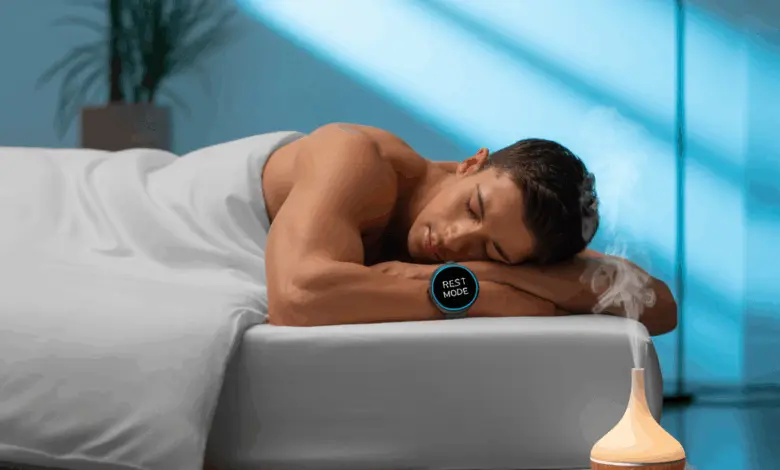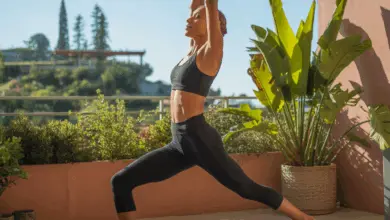How to Fall Asleep Fast: Proven Tips for Restful Nights

Have you ever found yourself staring at the ceiling, counting sheep, or scrolling endlessly through your phone, all while the minutes tick away and sleep seems impossibly out of reach? If tossing and turning feels like a nightly routine, you’re not alone. Falling asleep quickly is a skill — one that can be mastered with the right strategies.
In today’s fast-paced world, mastering how to fall asleep fast is more important than ever for maintaining your health, energy, and mood. Whether you struggle with occasional restlessness or chronic insomnia, this guide offers practical fitness tips, workout variations, and lifestyle hacks to help you drift off naturally and wake up refreshed.
Why Falling Asleep Quickly Matters
Good sleep is the foundation of your physical and mental well-being. When you fall asleep faster, you maximize your deep and REM sleep phases — crucial for muscle recovery, memory consolidation, and emotional balance.
Delaying sleep not only leaves you feeling groggy but can also contribute to anxiety, weight gain, and reduced immune function. Luckily, simple changes to your routine and environment can help change the game.
How to Fall Asleep Fast: Top Strategies That Work
Create a Consistent Sleep Schedule
One of the most effective long-term solutions is setting a regular bedtime and wake-up time — even on weekends. Your body’s internal clock, or circadian rhythm, thrives on consistency. Going to bed and waking up at the same time each day signals your brain when it’s time to wind down.
Incorporate Relaxing Workout Variations
Physical activity is a powerful way to improve sleep quality, but timing and type matter. Moderate aerobic exercises like brisk walking, swimming, or cycling performed in the morning or early afternoon help regulate your sleep cycle without overstimulating your nervous system at night.
Try yoga or gentle stretching as part of your evening routine. Poses that focus on deep breathing and relaxation—such as Child’s Pose or Legs-Up-The-Wall—calm the mind and ease physical tension, helping you fall asleep faster.
Optimize Your Bedroom Environment
- Keep it cool: Aim for a bedroom temperature between 60-67°F (15-19°C) to promote sleep-friendly conditions.
- Limit noise and light: Use blackout curtains and white noise machines if needed.
- Invest in supportive bedding: A good mattress and pillows aligned with your sleeping posture can make a huge difference.
Practice Mindfulness & Breathing Techniques
Stress and overthinking often keep us wired when it’s time to sleep. Mindfulness meditation and deep-breathing exercises calm your nervous system and prepare your mind for rest.
Try the 4-7-8 breathing method: inhale through your nose for 4 seconds, hold for 7 seconds, then exhale slowly through your mouth for 8 seconds. Repeat until you feel sleepiness take over.
Healthy Lifestyle Tips to Enhance Sleep Quality
Limit Caffeine and Alcohol Intake
Caffeine is a well-known sleep disruptor—even if consumed early in the day for some people. Limit coffee, tea, and energy drinks, especially in the afternoon and evening. Alcohol, though it may initially make you drowsy, fragments sleep cycles and reduces overall sleep quality.
Watch Your Evening Screen Time
Blue light from phones, tablets, and computers suppresses melatonin production—the hormone that tells your brain it’s time to sleep. Try to avoid screens at least 60 minutes before bedtime or use blue light filters if unavoidable.
Choose Sleep-Supportive Foods
Eating a balanced diet rich in magnesium, calcium, and tryptophan supports restful sleep. Examples include leafy greens, nuts, bananas, turkey, and yogurt. Also, avoid heavy meals or excessive liquids close to bedtime to minimize discomfort and nighttime bathroom trips.
Real-World Examples: How Simple Changes Made a Difference
Take Sarah, a busy professional who struggled with sleep due to stress and erratic work hours. By incorporating a 20-minute yoga routine focused on relaxation, adjusting her room with blackout curtains, and cutting out late-afternoon caffeine, she cut her time-to-sleep from over an hour to just 15 minutes. She also started journaling her thoughts before bed, another useful mindfulness strategy.
Mark, a fitness enthusiast, found that his intense evening workouts kept him wired and delayed sleep onset. By shifting his cardio sessions to mornings and swapping late-night HIIT for gentle yoga, he improved both his sleep speed and quality dramatically.
Frequently Asked Questions About How to Fall Asleep Fast
Most healthy adults fall asleep within 10 to 20 minutes of going to bed. If it regularly takes longer, it may be a sign of sleep problems or poor sleep habits.
Yes! Regular physical activity helps regulate your sleep-wake cycle and reduces stress. However, intense workouts close to bedtime might have the opposite effect, so timing is key.
Melatonin supplements can help reset your internal clock, especially during travel or shift work. But they’re not a long-term solution for chronic sleep difficulties. Always consult a healthcare provider before starting supplements.
Conclusion: Take Charge of Your Sleep Tonight
Learning how to fall asleep fast isn’t about quick fixes or one-size-fits-all solutions—it’s about cultivating a balanced lifestyle that supports your body’s natural rhythms. From regular exercise and mindful breathing to optimized sleep environments and nutrition, small changes add up to better nights.
Start by implementing one or two of the strategies above tonight, and notice how your ability to drift into restful sleep improves. For more personalized ideas, check out our wellness tips and workout routines pages to find routines that suit your lifestyle and enhance your sleep naturally.
Sweet dreams and wake up ready to conquer your day!





